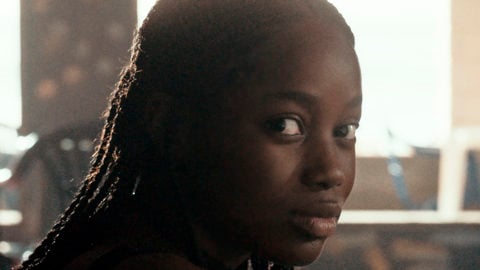News to Me: Ann Hui, Ruben Östlund, and Festival Fever

Parasite (Bong Joon-ho, 2019)
1. The Cannes Film Festival has now come and gone, with Bong Joon-ho’s Parasite taking top honors. Other winners include Mati Diop’s Atlantics (Grand Prix), Kleber Mendonça Filho and Juliano Dornelles’s Bacurau (which shared the Jury Prize with Les Misérables—the non-Valjean version), and Antonio Banderas (Best Actor) for Pain and Glory. For a look at how these choices compare with the critical consensus, check out these infographics from Germany, Argentina, the International Cinephile Society, and Screen Daily. And of course, for more on the festival, check out The Film Comment Podcast on our SoundCloud.
2. If keeping up with Cannes still has you burning with festival fever, then fear not: a slew of exciting smaller events are already underway. This includes the New York African Film Festival, begun at BAM on May 23 and continuing at Film at Lincoln Center until June 4; Film Forum’s Yiddish film series, The Jewish Soul, underway until July 3; and Beat Film Festival in Moscow, running through June 9.
3. A little later on, beginning August 16, the Sarajevo Film Festival will celebrate its 25th year. To mark the occasion, Ruben Östlund, director of the 2017 Palme d’Or winner The Square, has been named as chair of The Competition Programme. (Östlund recently discussed his forthcoming film, Triangle of Sadness, with Variety.) In further good news for the festival, the AMPAS have announced that SFF’s short film category will now qualify those featured for Academy Award eligibility.
4. Whether seeking distribution for a new film or funding for the next one, a filmmaker’s biggest concern on the festival circuit is getting their vision out into the world. But what happens, for example, when Atlantics finishes its 36-month Netflix run—what is the fate of the film itself? In 2016, Filmmaker released this piece on the perils (and importance) of archiving one’s film, pointing out such organizations as IndieCollect, who have dedicated themselves to the preservation of independent American cinema. (Not mentioned: the Internet Archive, which houses such classics as Thomas Edison’s 1910 film, Frankenstein.)
5. Ann Hui and Christopher Doyle, two of the Hong Kong New Wave’s biggest names, are set to join forces for Love After Love, a forthcoming film by Alibaba Pictures. Adapted from a short story by Eileen Chang (a favorite of Hui’s), it follows a young woman who travels to Hong Kong in pursuit of an education, but instead learns how to seduce wealthy men for her own gain.
6. Over at Ssense, Ruby Brunton sat down with John Waters to talk about what happens when transgression goes mainstream: “It is still underground filth, I just get awards for it from the government . . . It still shocks me that Pink Flamingos plays on television, because they asked, ‘Can we cut out the blow job scene, can we cut out the artificial insemination?’ and I said, ‘Yeah, sure,’ and then they forgot to!” The article also includes some brilliant photography of Waters’s home in Baltimore, shot by Heather Sten.
7. Anthology Film Archives began its Dominik Graf retrospective this weekend, programmed by FC contributor Olaf Möller. Over at MUBI, Möller penned this introductory essay on the filmmaker, dubbing him the Federal Republic of Germany’s “best kept secret.” (For more on Graf and the Anthology retrospective, check out this piece by Giovanni Marchini Camia.)
8. Much-loved and much-bearded film critic Richard Brody recently suffered the kind of viral Internet outrage we all deeply fear. His crime? Daring to ruin Booksmart’s perfect “100% Fresh” Rotten Tomatoes score. Equally evil, apparently: consider our own Cassie da Costa’s unsympathetic take on the film, or Melissa Anderson for 4Columns, who labeled it “an ultimately conservative project that ends up flattering no one.”
9. “I’m not against fiction in art, I actually quite like it. In China, fiction means something different than it does in the West. It involves turning away from reality.” In a recent interview with Patrick Gamble, Wang Bing discusses his latest film, Beauty Lives in Freedom, and the differences between history and reality. For our July/August 2018 issue, Eric Hynes dug deep into Wang Bing’s previous film, Dead Souls, writing that it operates on “a scale that’s nearly as epic as that of Shoah.”
10. Jordan Belson is most famous for his avant-garde films, and has been touted as “one of the greatest artists of visual music.” But in this article for Hyperallergic, John Yau studies the artist in just two dimensions—looking at Belson’s early work as a painter, spanning 1950-65, currently on display at the Matthew Marks Gallery in New York. Yau writes that Belson’s small but alluring works represent “a kind of private looking that is all but forgotten—and even denigrated—in an age of spectacles, installations, monumental scale, and selfies.”
We leave you this week with an excerpt from Belson’s 1977 Music of the Spheres, courtesy of the Center for Visual Music.






